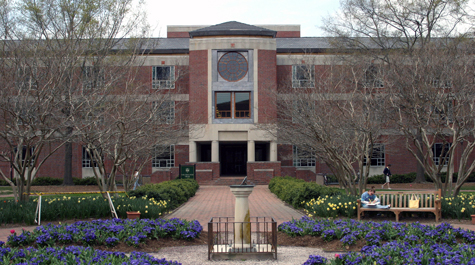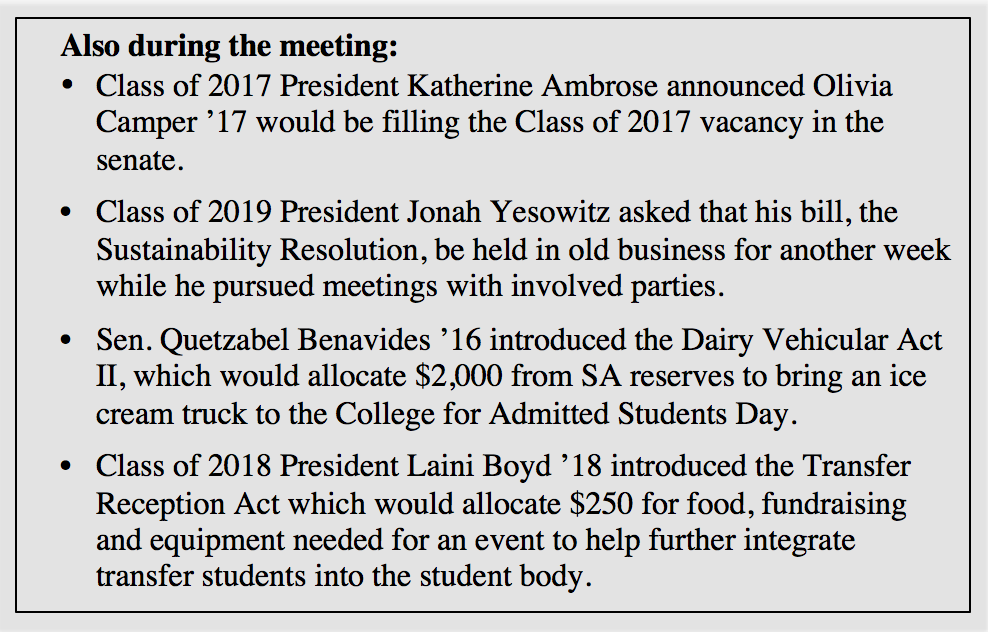Progress on the Student Assembly’s affordable textbook plan moved forward one step Tuesday with a presentation by Dean of University Libraries Carrie Cooper and Digital Scholarship Librarian and Arts Librarian Kathleen DeLaurenti. The presentation educated the senators on the details of Open Educational Resources (OER) and advocacy work for textbook affordability to prepare them for a vote on the Save the Future of Humanity from Excessive Textbook Expenses bill, which was tabled the week before.
According to Cooper and DeLaurenti, legislation at the local, state and federal level that would provide grants for textbooks is in the works. For example, the Department of Labor has now mandated that all projects that they fund be released as open resources, and the Department of Education is considering similar legislation.
“I care very much about this issue of textbook affordability,” Cooper said. “My kids are in middle school and they can’t afford to buy textbooks for all of the students. It was hard for me to help my child succeed because he didn’t have a textbook. This is really an issue for librarians and schools. How can you do your best and learn the content from your course if you don’t have access to what you’re learning?”
Cooper and DeLaurenti have worked with professors to get feedback on what materials they would like open access to. The physics department was the first to switch over to OER, but plans for the next year aim to bring open access to many other courses.
“It has come to attention that you don’t know how to find out what materials are required for the courses you want to take,” DeLaurenti said. “It makes it really hard to budget for your books. We discovered that there is a federal law that says colleges should know what [the students] need before they register for class.”
Additionally, they have worked to further textbook affordability in other ways. One of their goals is to work with faculty and the bookstore to ensure that students can see what materials are required for each course before registration. They told the Student Assembly Senate about the Higher Education Opportunity Act, a Congressional Act passed in 2008 that asks colleges to provide the list of assigned textbooks for each course during registration. The College of William and Mary has not been compliant with this act.
“It has come to attention that you don’t know how to find out what materials are required for the courses you want to take,” DeLaurenti said. “It makes it really hard to budget for your books. We discovered that there is a federal law that says colleges should know what [the students] need before they register for class. This is another thing Swem is advocating for. I have my monthly meeting with the provost on Thursday and this is something I’m going to bring up.”
The SA bill, a centerpiece of SA President Yohance Whitaker’s ‘16 election campaign, would allocate $5,050 of grant money to the Earl Gregg Swem Library to help fund the process of switching courses to open resource. After lengthy senator discussion during the Jan. 26 meeting, senators voted to hold the bill in old business. Following that meeting, Whitaker and others worked to amend the bill, switching the focus of the grant money to the psychology department. However, senators have not discussed the bill at the last two meetings.
Although this presentation was not specifically about the SA bill, Cooper and DeLaurenti provided the senators with some steps on how they could help Swem further its textbook affordability goal. They asked the senate to work with faculty to sign a pledge in support of open resources during Open Education Week in March. Additionally, they asked for funding to provide awards for faculty who go above and beyond in making their materials open resources and for funding to help supply more courses with OER books.
There was no senator discussion following this presentation since it was not part of a bill, but senators did raise questions as to where the funding would come from in the future, whether resources could ever be made open to graduate students and whether this would create harmful competition with the bookstore.


